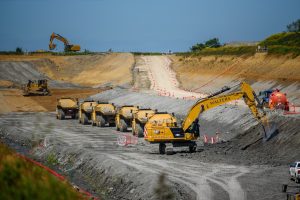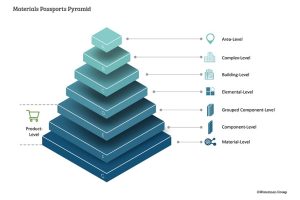New technology has a huge amount to offer the engineering sector. Our industry has in the past – fairly or unfairly – been viewed as slow to adopt new tools with which to design and deliver projects.
Yet the pages of New Civil Engineer today present a very different perspective.…
Latest Business News
Autumn Statement reveals Connections Action Plan and new infrastructure planning application process
This year’s Autumn Statement has seen chancellor of the exchequer confront the mounting energy security concerns apparent in the UK and try to breakdown barriers in planning infrastructure.
Yesterday, 22 November, Jeremy Hunt and the Conservative Party announced the Connections Action Plan to help the connectivity logjam the UK’s energy sector…
New British Infrastructure Council meets to discuss investment opportunities
Shadow chancellor Rachel Reeves has convened the first meeting of a new British Infrastructure Council, which will consider ways to boost infrastructure investment.
Members of the council, which met on Monday 20 November, include leaders from Lloyds, HSBC, Santander UK, Phoenix, Fidelity and US firm BlackRock. They are acting in an…
Knowing the baseline is critical to delivering carbon reductions
As COP28 comes into focus, when world leaders and policy makers will once again grapple with the challenge of limiting global temperature rises to the 1.5°C ambition, it is important for us to take stock as an industry on what progress we have made in reducing the carbon cost of…
Productivity improvement is the only way to deliver the infrastructure this country needs
There has been plenty of talk about the UK’s planning system, and this will no doubt continue as we reflect on the Autumn Statement, fuelled by the National Infrastructure Commission’s (NIC) recently published assessment, which calls for a significant increase in infrastructure investment across the UK.
Quite rightly, the NIC…
There should be more collaboration between non-destructive testing and civil engineering
Non-destructive testing (NDT) is often overlooked in day-to-day life but underpins much of the modern world. From the train you take to work, to the power station generating the electricity for your morning cup of coffee or the planes that fly you to your holiday destination, there is a group…
HS2 reveals digital innovations for efficient earthmoving and fresh concrete testing during transport
Engineers on High Speed 2 (HS2) have revealed innovations that utilise on-machine technologies to improve earthmoving processes and allow real-time digital concrete testing during transportation.
The efficient earthmoving technology has been utilised in a partnership between HS2 main contractor EKFB (Eiffage, Kier, Ferrovial, Bam) and equipment supplier Finning and has reportedly…
Without political certainty and commitment we won’t meet our infrastructure and net zero goals
Writing in New Civil Engineer in August, I made the case for why we need to keep infrastructure apart from politics – lifting it up above political cycles to reduce uncertainty and better enable successful delivery and positive outcomes for society.
Since August, events have served only to strengthen this…
Structural engineers are living up to their responsibility to future global prosperity
As net zero 2050 deadlines and their interim 2030 targets draw closer, the global structural engineering community is stepping up to meet the challenge of decarbonising the built environment.
The professional parameters for practitioners have evolved over the past two decades, and it's no longer satisfactory to achieve structural integrity…
Waterman launches Materials Passports Framework to unlock material reuse in construction
Waterman Group has released its Materials Passports Framework to standardise the construction industry’s approach to documenting and managing materials through their lifecycle.
Touted as “a major step forward in helping the industry tackle its carbon reduction commitments”, the framework provides the sector with a guide to creating a comprehensive database of…
 New Civil Engineer Civil engineering and construction news and jobs from New Civil Engineer
New Civil Engineer Civil engineering and construction news and jobs from New Civil Engineer









